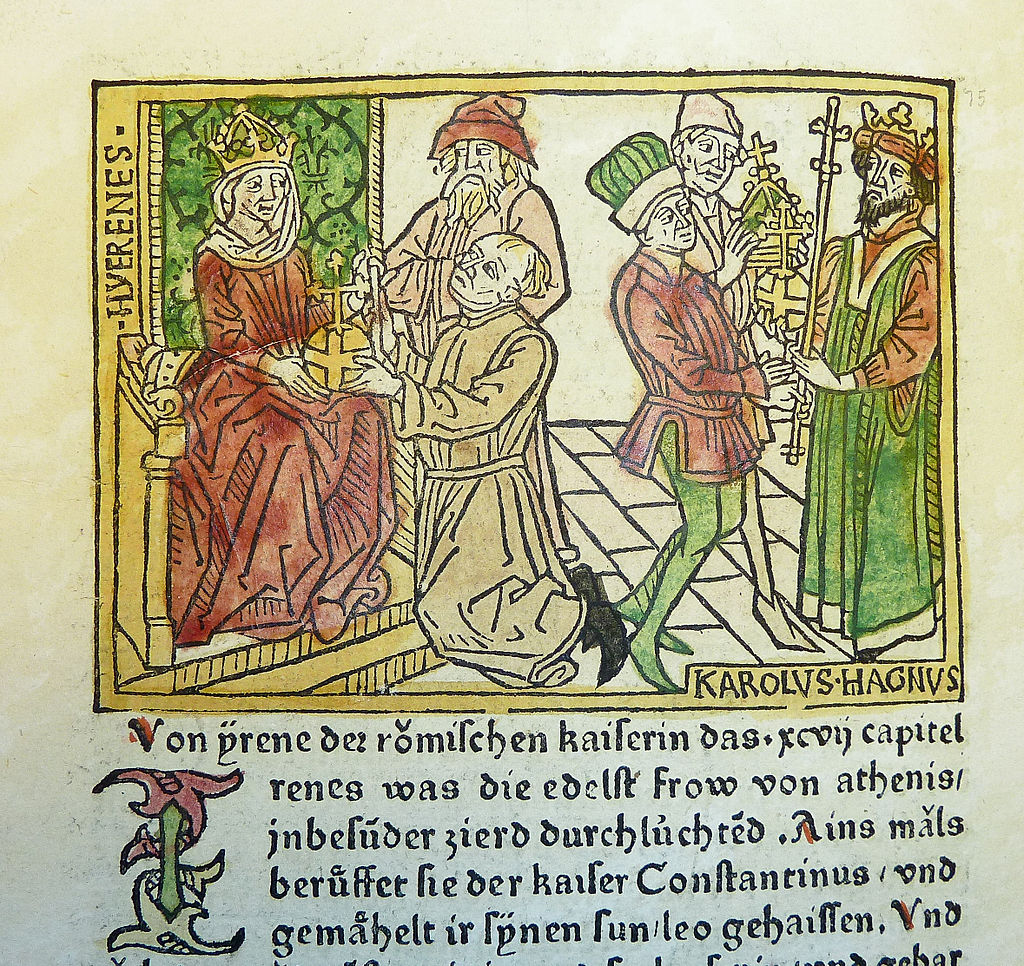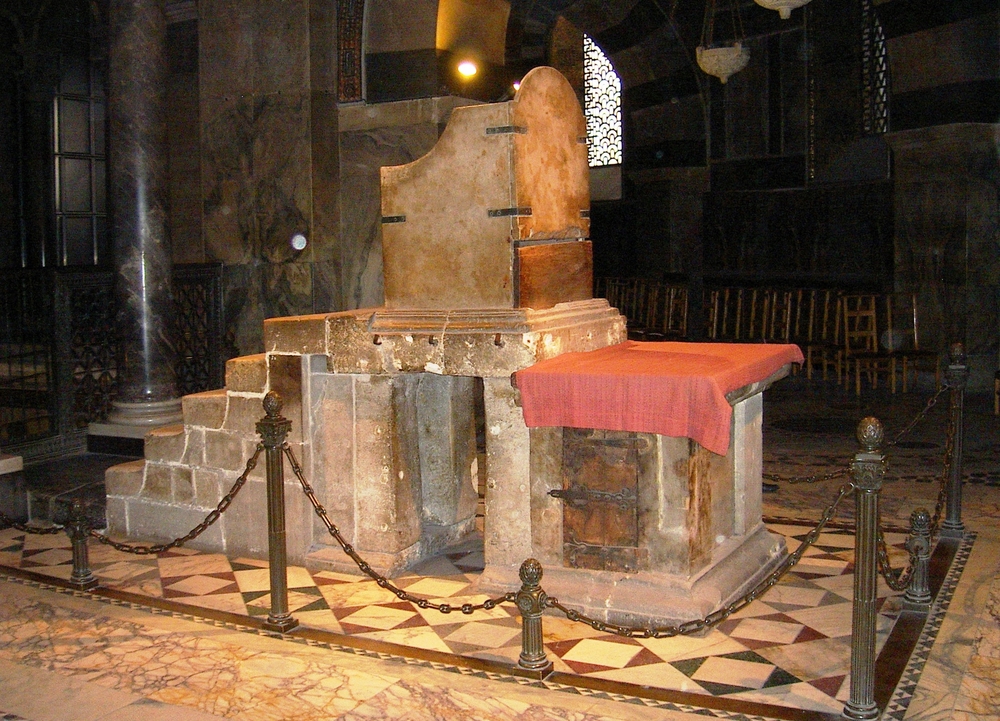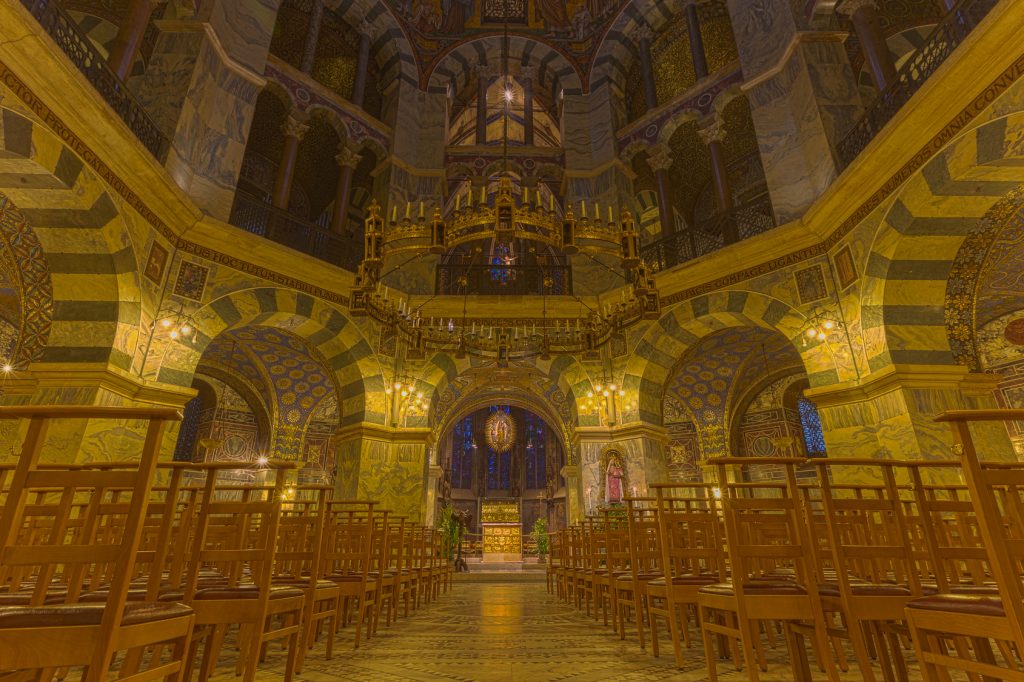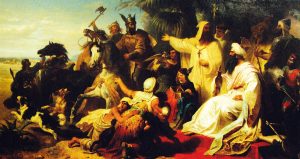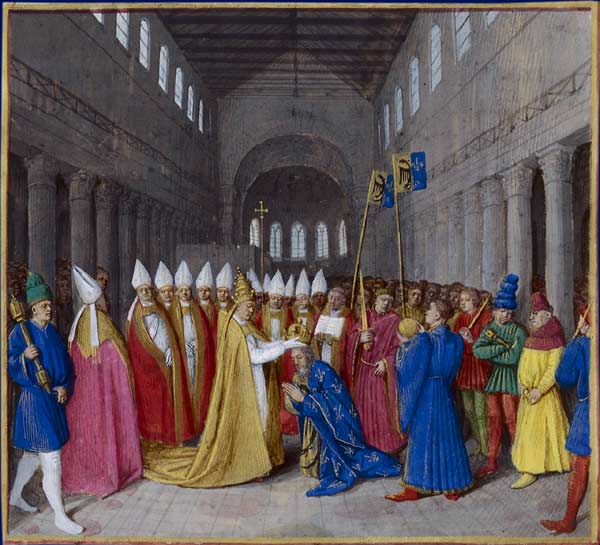
790 AD to 810 AD, Psalm 87: Charlemagne.
This site was first built in French (see www.147thgeneration.net). The English translation was mainly done using « google translation ». We have tried to correct the result of this translation to avoid interpretation errors. However, it is likely that there are unsatisfactory translations, do not hesitate to communicate them to us for correction.
(for that click on this paragraph)
Summary
This generation is from the years 790 AD to 810 AD.
According to our count, this generation is the 87th generation associated with Psalm 87. It is in this Psalm 87 that we therefore find an illustration of the facts of this generation.
For the new Christian empire of the West, this generation is entirely marked by the undivided reign of Charlemagne.
In the Byzantine Empire, upon the death of Leo IV, his widow, Irene, seized power by gouging out her son’s eyes. The effect of this event, in addition to weakening the image of Byzantium, encourages, a little more, in addition to the crisis of the iconoclast, the papacy to find its salvation towards the new empire of the West.
In the last years of his reign (after his coronation in 800), Charlemagne ceased his conquests and mainly focused on strengthening the borders of the new Empire. The “world” suddenly comes to enlarge and now encompasses much of Europe today.
The reign of Charlemagne and the Carolingian dynasty as a whole is favorable to the Jews. Sensitive to the Old Testament, his throne is said to reproduce that of Solomon, the new capital of the Empire, Aachen becoming a new Jerusalem.
The real Jerusalem has been under Arab control for over a century and a half, with relative tolerance towards Christians. Following abuses against them, Charlemagne sent an embassy to Baghdad to remedy it.
Thus at the dawn of the outbreak of European civilization, it is not the ancient civilizations that serve as a reference, but it is the memory of the small kingdom of Israel which is the reference for the new masters of the West. All his arrogant enemies have fallen into oblivion despite their past power, only the memory of the kingdom of Israel remains.
Talk
Frankish kingdom
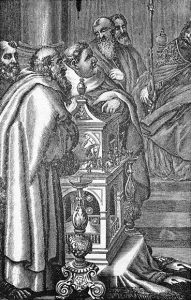
For the Abbasid dynasty of Baghdad, this generation is mainly that of the caliphate of Haroun al-Rachid (786-809). His estate is the subject of a struggle between his two sons Al Amin and Al Ma’mûn. Al Hakam 1st (The « fallen », nickname of Al Amin) succeeds his father, according to the choice of the latter, from 809 to 813 before giving way to his brother following a fratricidal struggle.
For the Caliphate of Cordoba, Hisham 1st, successor of the first Umayyad emir of Cordoba reigns from 788 to 796. His successor is Al Hakam I from 796 to 822. Hisham’s reign [1] is marked by incessant but not decisive battles with the Christian principalities of northern Spain (Asturias). Al Hakam, must also fight internal rebellions and the troops of Charlemagne who try to seize the north of Spain (Barcelona, Tortosa, Tarragona, Huesca).
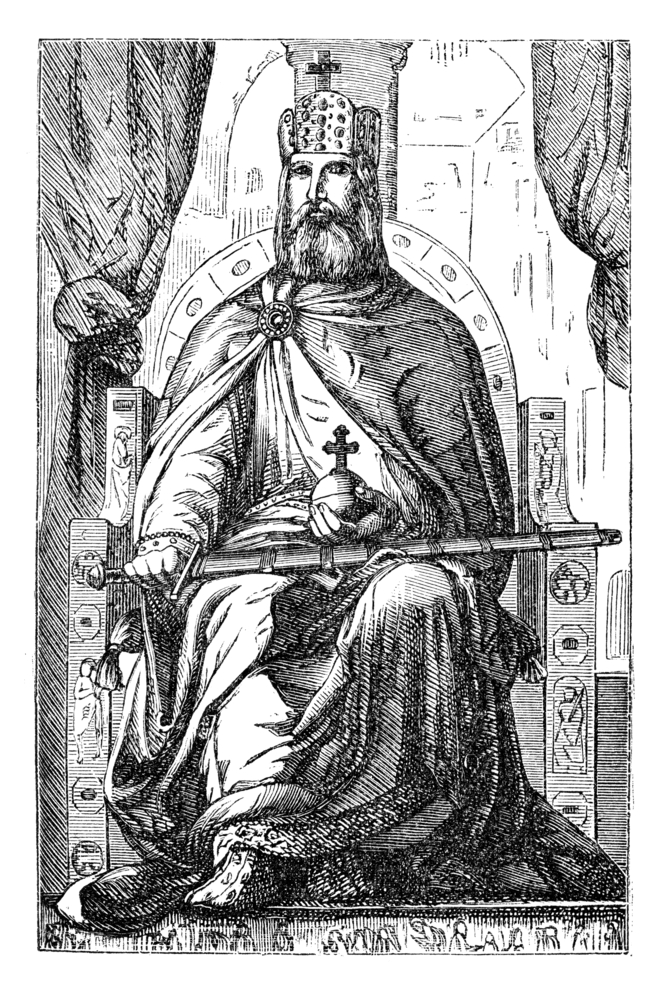
For the new Christian empire of the West, this generation is entirely marked by the undivided reign of Charlemagne. He became the master of the Frankish kingdom (which roughly included France and Germany today) after the death of his brother Carloman in 771, his reign continued until his death in 814.
The outbreak of this new empire is facilitated by the confusion that dominates within the Byzantine Empire during this generation.
Irene
At the death of Leo IV (775-780), it was Constantine IV who succeeded him (780-797), but too young to ensure power, it is Irene, the widow of Leo IV who ensures the regency.
In 797, she appropriates the power definitively by bursting the eyes of Constantine IV, his son, and by naming definitively Basileus. The effect of this event, in addition to weakening the image of Byzantium, encourages, a little more, in addition to the crisis of the iconoclast, the papacy to find its salvation towards the new empire of the West.
Subsequently, Charlemagne tries to unite with Irene, which would have allowed the reconstruction of the ancient Roman empire. The death of Irene in 802 does not allow it, it is likely that this union would have greatly changed the course of the history of the world. Nicéphore 1st succeeds Irene.
Charlemagne and his model
In the last years of his reign (after his coronation in 800), Charlemagne ceased his conquests and mainly focused on strengthening the borders of the new Empire. It consolidates the Spanish march from Asturias to the Mediterranean to protect itself from the Emir of Cordoba. It installs a large number of fortresses in the east on the Elbe from the North Sea to the Adriatic, The « world » suddenly comes to enlarge and now encompasses much of Europe today.
The reign of Charlemagne and the Carolingian dynasty as a whole is favorable to the Jews.
The Carolingians and mainly Charlemagne are at the initiative of a Christian West that persists to this day. But behind the defense of Christianity, there is a deep respect for the Old Testament. This is found particularly in the generalization of the use of Biblical names. Beyond the adoption of names, it is the main characters of the Bible that serve as a reference and model Carolingian kings following an old Frankish tradition. Tradition confirmed by Pepin who will also bring back to life the biblical coronation. It is therefore natural that Charlemagne himself is compared to the principal actors of the Bible, David in particular.
But the attraction of Charlemagne does not stop with the character of David. The new capital of the Empire is also comparable to Jerusalem:
- Sober [2] and grandiose, it is the expression of a thought at once political and religious, the symbol also of the power and the prestige reached by the kingship of Charlemagne which at the end of the eighth century is mounted on a plane next to that of the emperor: he is « imperator similis ». The atmosphere floating in the sanctuary is primarily biblical. The famous stone throne erected on six steps, with its rounded back and armrests, reproduces that of Solomon: « Let me, » writes Alcuin to Charlemagne, « carry me with twigs of palms, accompanied by singing children. hymns, to meet the triumph of your glory and find your dear face in the Jerusalem of our long-desired homeland where the temple is located that the very wise Solomon raised to God ». Aix La Chapelle thus appeared the new Jerusalem, foreshadowing and announcing the eternal by its octagonal plan and the throne of the new David (Charlemagne).
Access to Jerusalem
In fact Jerusalem also plays an unexpected role in the legitimation of Charlemagne just before his coronation in 800:
- The Christians [3], priests and monks who lived in Jerusalem, the pilgrims who went to the Holy City, also turned their eyes to Charlemagne. The Arabs occupied Palestine for a century and a half. They showed relative tolerance towards Christians, and respected almost the churches and monasteries they had built.
Thus at the dawn of the outbreak of European civilization, it is not the ancient civilizations that serve as a reference, but it is the memory of the small kingdom of Israel which is the reference for the new masters of the West. All his arrogant enemies have fallen into oblivion despite their past power, only the memory of the kingdom of Israel remains.
This one was born there
This is the meaning of the psalmist’s account for the psalm of this generation:

- Of the sons of Korah, a song with musical accompaniment, whose foundation is on the mountains of the Sanctuary.
- The Lord loves the gates of Zion more than all the dwellings of Jacob.
- Glorious things are said about you, the city of God, forever.
- I will remind Rahab and Babylon of My beloved ones. Behold Philistia and Tyre with Cush, « This one was born there. »
- And to Zion it will be said, « Man after man was born in her, » and He will establish it on high.
- [When] the Lord counts in the script of the peoples forever, [He will say,] « This one was born there. »
- And singers as well as flute players, all my innards are concerned with you.
The final, unusually cheerful tone of the psalm is to be compared with the following story which confirms that in the Carolingian era, everything that came from Israel (« This one was born there.« ) had an exceptional precious aspect:
- The little story [4], a delicious example of medieval humor, deserved to be briefly told: Charlemagne wanted to cure one of his bishops of his greed for rare and precious objects. He ordered a Jewish merchant, that his business trips often led to the Holy Land from where he brought back to Europe rare and precious objects, to deceive this bishop and to expose him to derision.

Our Jew took a domestic mouse which he perfumed, and showed it to the said bishop, claiming to have found in Judea this animal never seen before. Immediately, the bishop wanted to acquire this precious object and offered him three pounds of silver. (followed by a long negotiation leading to the acquisition of the mouse for the bishop for a fabulous sum) … He (the Jew) brings to Charlemagne the selling price and tells him in detail the whole scene. (Charlemagne during a meeting with the bishops then ridicules the buyer, then the buyer repents of his attitude).

[1] According to: André Clot: « Muslim Spain ». Chapter: « The Umayyad Emirs ». (French: « L’Espagne musulmane ». Chapitre : « Les émirs omeyyades »).
[2] Robert Folz: « The imperial coronation of Charlemagne ». Chapter: « Aix La Chapelle and Rome » (French: « Le couronnement impérial de Charlemagne ». Chapitre : « Aix La Chapelle et Rome» (p. 139) ).
[3] Georges Bordonove: « Charlemagne 768-814 ». Chapter: « Fourteen Years of Reign » (French: « Charlemagne 768-814 ». Chapitre : « Quatorze ans de règne » (p. 242) ).
[4] Bernhard Blumenkranz: « Jews and Christians in the western world 430-1096 ». Chapter: « Economic Life: Profession of the Jews or Jewish Professions » (French: « Juifs et Chrétiens dans le monde occidental 430-1096 ». Chapitre : « La vie économique : profession des Juifs ou professions juives» (p. 16) ).

